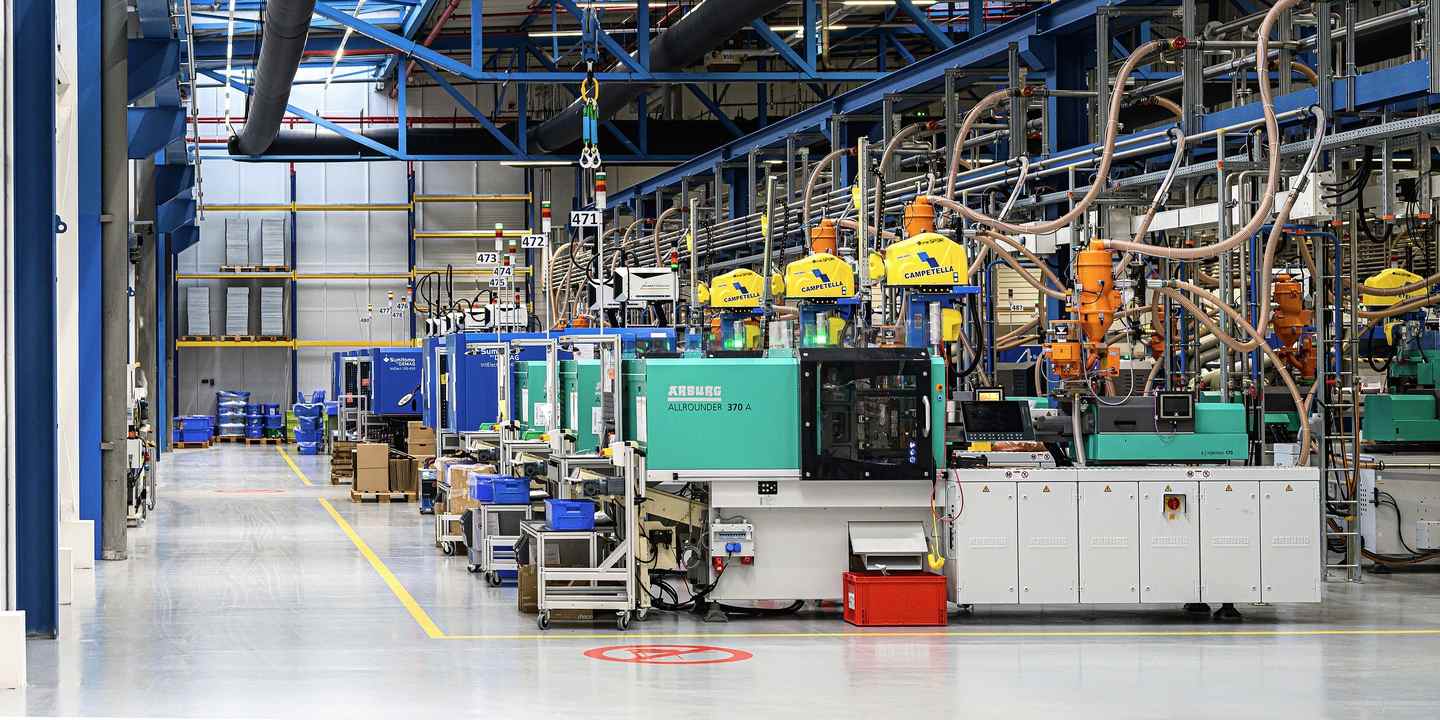Sustainability and Production: The Example of Plastic Injection Molding Machines
16 October 2024
At Hager Group, sustainability is a cornerstone of our business strategy. A prime example is the injection molding machines at our Bischwiller site.
These machines are at the heart of our industry: they mold products for our global customers in a matter of seconds. However, each injection produces plastic waste, making it essential to find a solution to recycle these materials effectively.
Proactive Management of Plastic Waste
For over 20 years, Hager Group has implemented an automated system for collecting plastic waste across its production sites. Today, 84% of the plastic waste generated in our processes is recycled directly on-site. These machines are equipped with devices that collect and grind plastic waste into granules, ready to be reused in our manufacturing processes. Each year, this system enables us to recycle nearly 280 tons of plastic. This approach not only reduces our environmental footprint but also optimizes production.
The following image illustrates the result of this process: on the left, the raw material, and on the right, the reprocessed material, ready to be reused!

Innovation Driving Sustainability
Our commitment doesn’t stop there. We have also implemented innovative practices to enhance the efficiency of our systems. For instance, at our Bischwiller site in Germany, a new filtration system installed in rainwater drainage channels captures plastic particles that might escape during raw material handling, completely eliminating the risk of pollution.
In addition, we partner with our suppliers to repurpose non-compliant parts and materials that we cannot recycle directly on-site. This enables us to maximize material reuse and further minimize waste production.
The collection devices (in grey) are directly connected to the injection presses for maximum efficiency.

A Comprehensive Sustainability Strategy
These initiatives reflect our long-term commitment to developing a sustainable model. They are an integral part of our sustainability strategy, known as E3, which encompasses ecology, employees, and ethics. Through this strategy, we integrate sustainable practices at every stage of our value chain, from product design to distribution.

